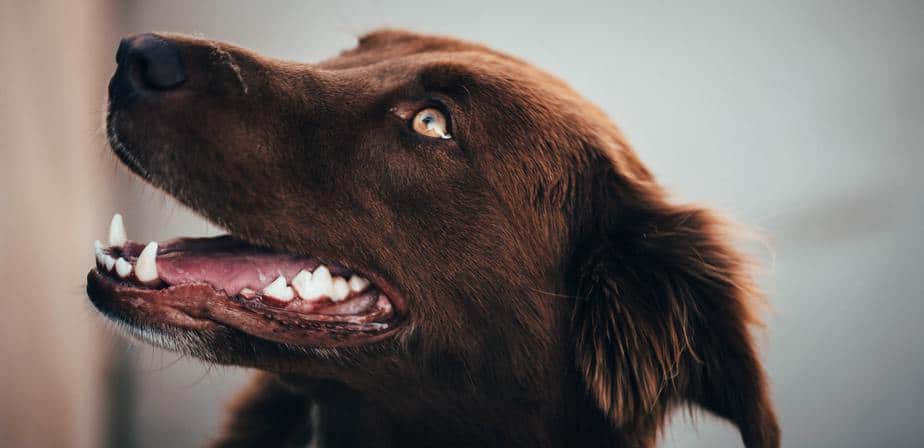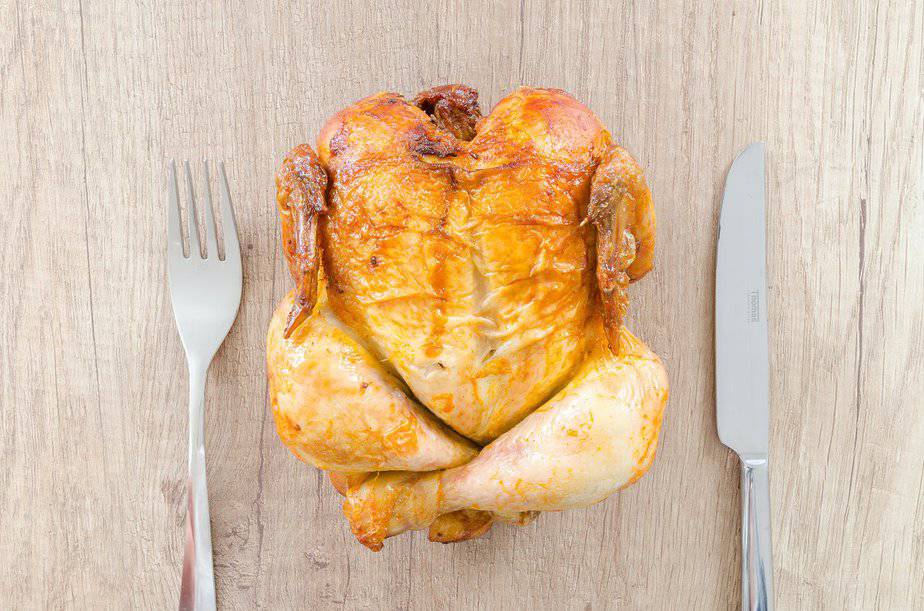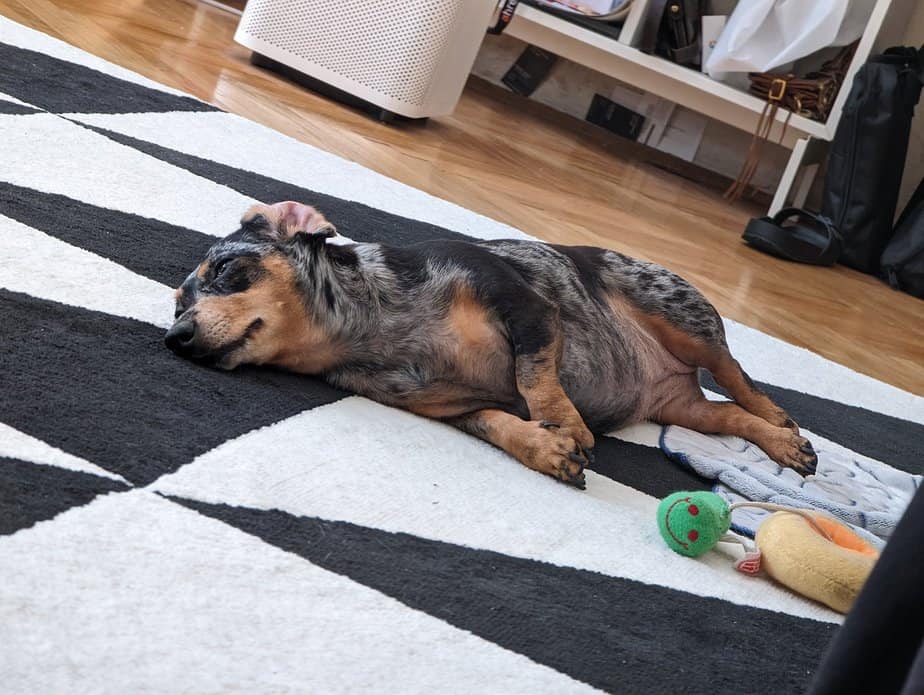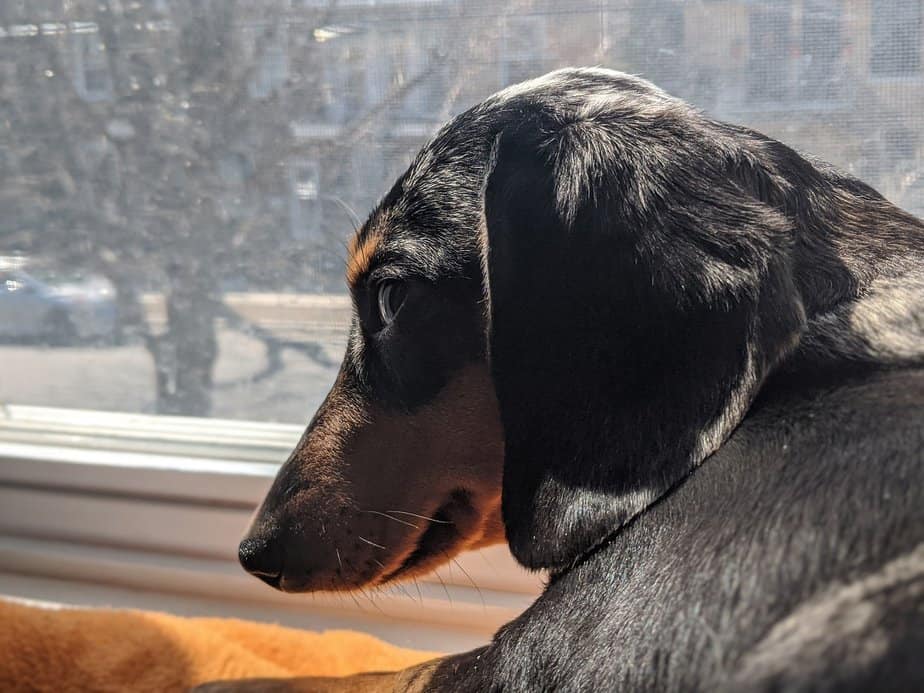Did you know dogs have 42 teeth? And yet, dental care isn’t included in most visits to the vet but it’s a crucial part of your pet’s health. Even as a puppy, our dog hated any attempts to brush her teeth but that hasn’t stopped us from being diligent about dental health. Our vet is always surprised because according to her, dachshunds are notorious for having rotten teeth. This is not the case for our dog. Dental cleanings are expensive. The routine procedure ranges from $500 up to $1,000 when we checked. Additionally, if you want procedures like extractions, you are out even more. You can bet we work hard to keep her mouth clean as a whistle. Here are some tips on how to proceed.
Are you supposed to brush your dog’s teeth? Short answer: YES!
Dogs get plaque and tartar on their teeth. “Regularly brushing your pet’s teeth is the single most effective thing you can do to keep their teeth healthy between dental cleanings, and may reduce the frequency or even eliminate the need for periodic dental cleaning by your veterinarian,” according to the AVMA.
How can I clean my dog’s teeth at home?
We found a solid vet article from the Union Lake Veterinary Hospital recommending similar things to our own vet: go with a finger toothbrush or your own finger until your dog gets used to it.
“We recommend using a finger toothbrush or your finger, and touch the teeth and gums until your pet is acclimated to the feeling. Use your toothbrush and paste and brush your pet’s teeth in an up and down, then side to side motion.”
We recommend you keep trying and always aim to make it a positive experience so your dog comes to tolerate this ritual. It takes 30 seconds a day. Do not forget to clean the brush afterwards!
What can I use to brush my dog’s teeth?
The most common option is a dog specific toothbrush that you can buy at any pet store along with special toothpaste. In a pinch, a little kid’s toothbrush will dog (their soft bristles are safe). If your dog is having none of it, try a finger brush.
You can ask your vet for recommendations, or check the Veterinary Oral Health Council (VOHC)’s PDF for the updated list of approved dental products for dogs. The organization tests and verifies based on their ability to prevent plaque and tartar accumulation.
How to clean your dog’s teeth naturally?
Dogs are the most loyal animals on the planet. They are also very loving and they will do anything for you. But sometimes they can be a little gross. One of the most common things that people complain about is their dog’s bad breath. It’s not just an unpleasant smell, it can also be a sign that something is wrong. As Dachshund owners, we know how important it is to keep our dog’s teeth and gums clean to keep our dog healthy but also to avoid the horrid bad breath. Our dog’s bad breath is legendary!
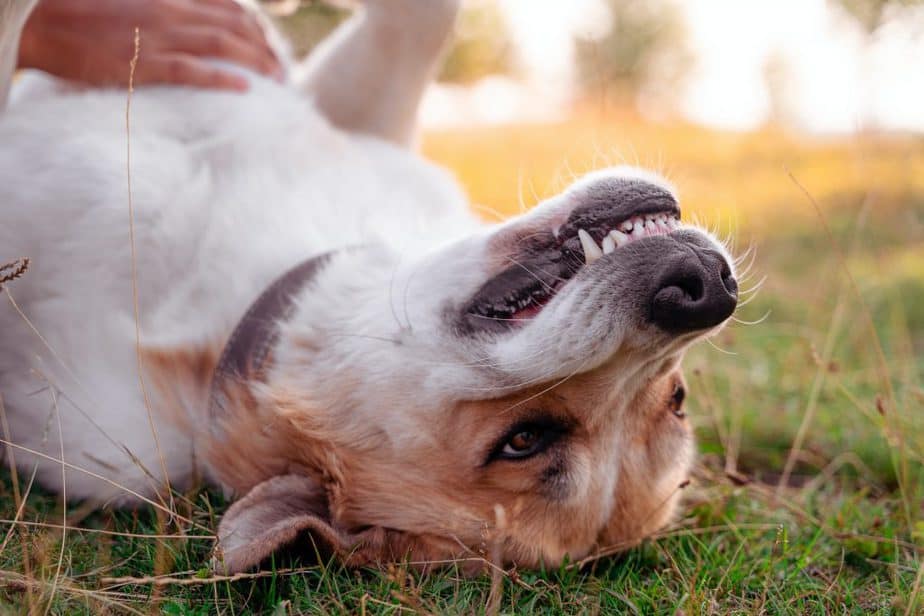
Clean those chompers, it takes 30 seconds!
Bones are a great way to help keep your dog’s teeth clean naturally
Chewing is the natural way for dogs to clean their teeth as the constant gnawing scrapes plaque off of teeth. There are all sorts of treats, toys, chews, and sticks out there that claim to help clean your dog’s teeth. In our experience, some of them are frankly ineffective while others get the job done. These products are made of a variety of materials ranging from plastic, rubber, nylon, and rawhide. The AKC suggests rotating different types chew toys to keep dogs interested.
We tend to give our dog actual raw bones from the butcher but there are some other alternatives you can look into.
We don’t like dear antler stuff though
Here’s why: based on how your dog uses the dear antler bits, it could erode their teeth and that’s not something we want, especially for a small dog with small chompers.
Himalayan cheese is hard enough to help them scrape off plaque
This is something that works wonders for us. You can find out more about this type of natural chew toy here.
Is anesthesia standard and/or necessary for a professional cleaning?
We were surprised to learn that it is for deep teeth cleaning. Our vet told us it’s lighter than full surgical anesthesia but you do have to ensure the dog doesn’t move when you stick point objects to scrape gunk off of their teeth. Even the chillest dog wouldn’t let you spend 15+ minutes with sharp tools in their mouth.
